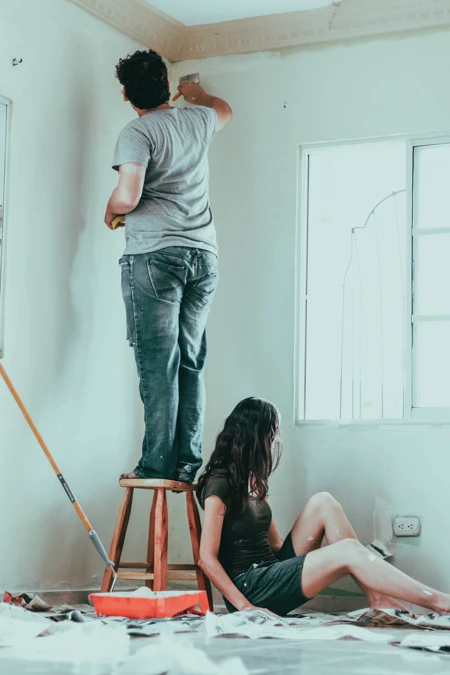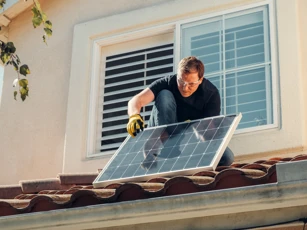The UK's housing stock is among the oldest in Europe, and many homes are poorly insulated, leading to higher energy bills and contributing to the climate crisis. It's not surprising that a third of Brits want to make their homes more energy-efficient, but many don't know where to start - according to research from Mortgage Advice Bureau.
Fortunately, there are small, simple steps homeowners can take to improve their home's energy efficiency and reduce their energy bills.
How can retrofitting help make a home more energy efficient?
Retrofitting can help make a home more energy efficient by improving its insulation and reducing heat loss. This can be achieved through measures such as installing wall, floor, and loft insulation, which slows down the transfer of heat and help keep the heat within the home, reducing the need to turn up the thermostat.
While undertaking these changes could be costly and will likely involve prolonged time scales, the government has implemented some important retrofitting goals for both homeowners and landlords that may pose some concerns, namely from a financial perspective.
Deputy CEO of Mortgage Advice Bureau, Ben Thompson, says:
“National programmes and incentives could make it easier for homeowners and landlords to upgrade their homes.
“It’s safe to say we all know the pain that inefficient homes are having on our bank accounts, but it’s also having an impact on the climate. Retrofitting is the best way to combat the UKs leaky homes. Wall, floor and loft insulation are some of the best ways to improve efficiency, but these can be costly.
There are, however, a number of ways people can improve their homes for very little cost or gradually over time. This includes switching bulbs to more efficient LED bulbs to reduce electricity consumption, or using things like draft excluders under external doors.”
How retrofitting adds value to your home
Improving your EPC rating can increase the value of your home, as better ratings are predicted to be a key feature for movers in 2023. A fifth of Brits (19%) say they couldn’t consider a house with an EPC of below grade C, and 46% of potential buyers would rather have good insulation over a bigger garden (29%), according to the same research from Mortgage Advice Bureau.

Our top retrofitting tips
Whether you’re looking to sell your home and want to improve its value, or simply want to do what you can to make your home more energy efficient, here are our top tips that would make the biggest difference to your EPC.
Remember, if you’re interested in retrofitting your home this year, make sure to discuss and plan the changes you wish to make to your home in detail beforehand with a qualified professional.
Wrap your home
One way you can improve your property’s energy efficiency is by installing retrofit wall, floor, and roof insulation.
This involves the use of insulating materials to increase the airtightness of a space, subsequently slowing the transfer of heat.
The type of roof, loft, floor, and wall you have will determine the amount of insulation work you need done.
We would recommend that you have your property surveyed first by a qualified surveyor, discuss the options available to you, and have any work installed by a licensed professional.
Tackle draughts
Unfortunately, it’s not always that simple as closing a door when there's a chilly breeze running through the house.
Draughts often come into our house through tiny gaps but there are some cheap and easy steps you can take to better draught-proof your home.
Fabric draught excluders - available at many high street home stores - can help stop cold air from creeping through gaps at the bottom of interior doors. You could also reinsulate the space between where the door meets the wall.
Small changes could have a big impact.
Upgrade your tech
Replace your appliances with energy efficient alternatives where you can.
LED bulbs can also further reduce your home’s energy usage and efficiency.
While it might not be cost-effective to replace everything all at once, when the time comes to replace things (like your washing machine), do your research first and look for a product with the highest energy efficiency rating.
Smart plugs allow you to remotely switch off connected appliances through your phone and cost as little as £20. This makes it easy to manage your energy usage.
Important information
Your home may be repossessed if you do not keep up repayments on your mortgage.
There may be a fee for mortgage advice. The actual amount you pay will depend on your circumstances. The fee is up to 1% but a typical fee is 0.3% of the amount borrowed.




